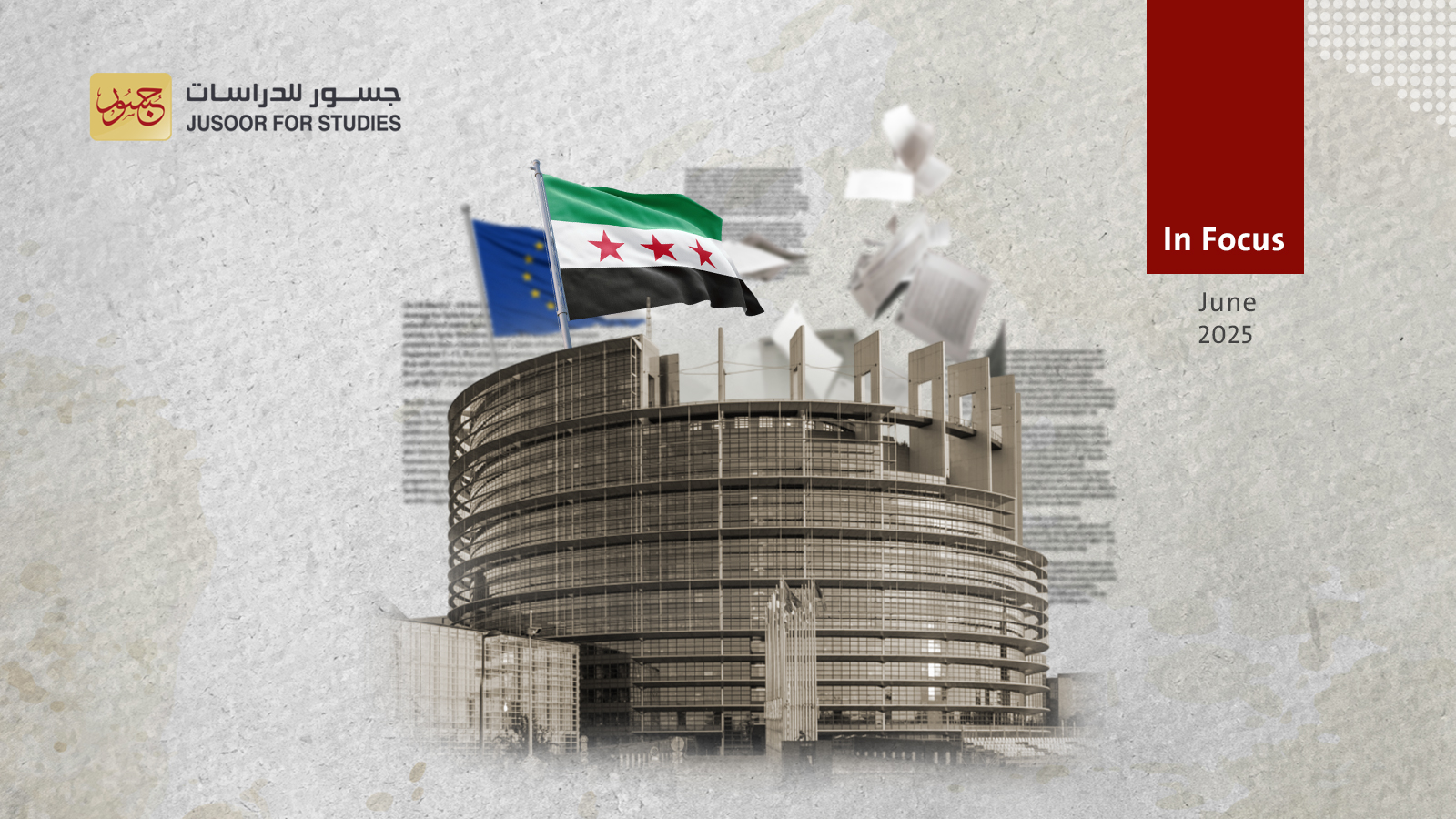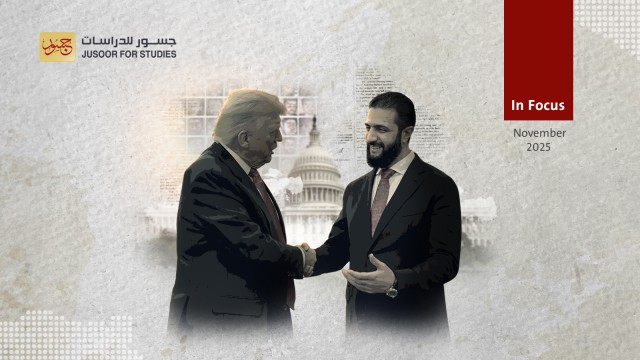Europe Lays its Strategy on Syria
The European Council has welcomed commitments by Syria’s interim President Ahmad al-Sharaa and the transitional government he leads to building a new Syria based on national reconciliation, the rule of law and the separation of powers, as well as human rights and fundamental freedoms for all Syrians without discrimination, while fully preserving the country’s diversity.
The body’s Foreign Affairs Council, which laid out the bloc’s future strategy in an 18-point document it approved at a meeting on June 23, also took note of Syria’s ongoing political transition and welcomed the ongoing cooperation with international investigative bodies, including the Organization for the Prohibition of Chemical Weapons (OPCW) and the International Atomic Energy Agency (IAEA).
It also welcomed the commitment of Damascus to combating terrorism, halting the production of the illicit drug Captagon, and facilitating the return of Syrian refugees.
The conclusions focus on two main areas. The first outlines the future European strategy in Syria, while the second lays out the EU’s demands of the Syrian government.
1. The European Union’s Future Strategy in Syria
The report expressed the EU’s commitment to:
• Maintaining its long-term engagement with, and support for, Syrian civil society.
• Continuing to support the work of the United Nations Special Envoy and his team on Syria, based on the spirit of the core principles of Security Council Resolution 2254 (2015).
• Supporting Syrian and international efforts to ensure accountability for all atrocities committed by the Assad regime and other parties, such as the Islamic State group (IS) and other terrorist or armed groups, during or since the Assad regime’s rule.
• Continuing to support the UN’s “IIIM” investigation mechanism, the International Commission of Inquiry, and the Independent Institution on Missing Persons in the Syrian Arab Republic.
• Supporting mediation and reconciliation efforts at the local and national levels.
• Supporting the security sector reform process, alongside other partners.
• Continue supporting the activities of the Organization for the Prohibition of Chemical Weapons (OPCW), including through financial support, to investigate, secure, and completely destroy all chemical weapons in Syria, including production facilities.
• Continuing to play a leading role in humanitarian funding for emergency response and early recovery efforts, and supporting Syria on its path to stability and reconstruction.
• Helping create conditions for safe, dignified, voluntary, and sustainable repatriation of Syrians abroad, and standing ready to support those who wish to return voluntarily.
• Ensure a stronger and more permanent EU diplomatic presence in Damascus as soon as possible, through the full reactivation of the EU Mission in the country.
2. The EU’s Demands of the Syrian Government
The report also called on the Syria government to:
• Work to establish strong and independent judicial institutions, efforts the EU has expressed its readiness to support.
• Maintain public order, ensure control over armed groups, protect all Syrians, regardless of their ethnic or religious background, and hold all perpetrators accountable, in accordance with international law.
• Protect Syria’s civic space by ensuring a safe and enabling environment for local and international civil society and independent media, free from threats, intimidation, and administrative obstacles.
• Join the Rome Statute of the International Criminal Court and accepting its jurisdiction.
• Exclude all terrorist and violent extremist elements from military and security forces.
• Condemn Russia’s aggression against Ukraine, vote positively in the UN General Assembly, and revoke the Assad regime’s recognition of Russian attempts to annex parts of Ukraine and Georgia.
• Take a tough stance toward Russia and Iran. The EU has expressed concern about these countries’ complicity in fueling violence and destabilizing Syria.
• Adopt competitive and independent positions and policies regarding its relationship with Türkiye. Although the EU spoke of the need to address Türkiye’s security concerns, it also called for this to be achieved in a framework that ensures that all Syrians enjoy security and basic rights.
• Engage with the international coalition against IS, decisively address the threat posed by all foreign terrorist fighters in Syria, work to eradicate extremism, rehabilitate and reintegrate Syrian citizens currently held at the Al-Hawl and Al-Roj detainment camps, and assist in the prosecution of those suspected of committing or facilitating terrorist acts.
• Ensure the rapid implementation of the next steps to eliminate Syria’s chemical weapons program once and for all and address the risks of proliferation.
• Engaging with the International Atomic Energy Agency (IAEA), ensure full implementation of the NPT Safeguards Agreement in Syria, clarify outstanding issues related to past activities, and conclude the required Additional Protocol with the IAEA, bringing it into force without further delay.
In conclusion, since the fall of the Assad regime, the European Union has engaged positively with the new government, changing key pillars of its previous strategy, which had been based on the three nos: no to normalization, no to lifting sanctions, and no to reconstruction.
It began by normalizing relations with the new government, opening up politically and diplomatically to it, and lifting sanctions on Syria. However, it has not changed its reconstruction strategy, which largely consists of the humanitarian response and early recovery efforts.
True and lasting stability in Syria can only be achieved through a massive program of reconstruction, estimated to cost hundreds of billions of dollars. For now, no party appears capable of designing and supervising the implementation of such a program—with the exception of the EU. The minor efforts that have taken place in Syria so far can barely be called reconstruction, as the contracts do not exceed a few billion dollars in value, and are limited to a narrow range of sectors.
Effective EU engagement in the reconstruction process is contingent on meeting the many demands and conditions contained in the conclusions laid out above, and in statements made by European officials. This requires the Syrian government to redouble and accelerate its efforts, to bring the country to a position that would convince the EU to change its strategy in this regard.
This could also pressure Damascus to consider reviewing the duration of the transitional period, currently set at five years, as it appears that reconstruction will remain on hold as long as the country remains in a state of transition.








